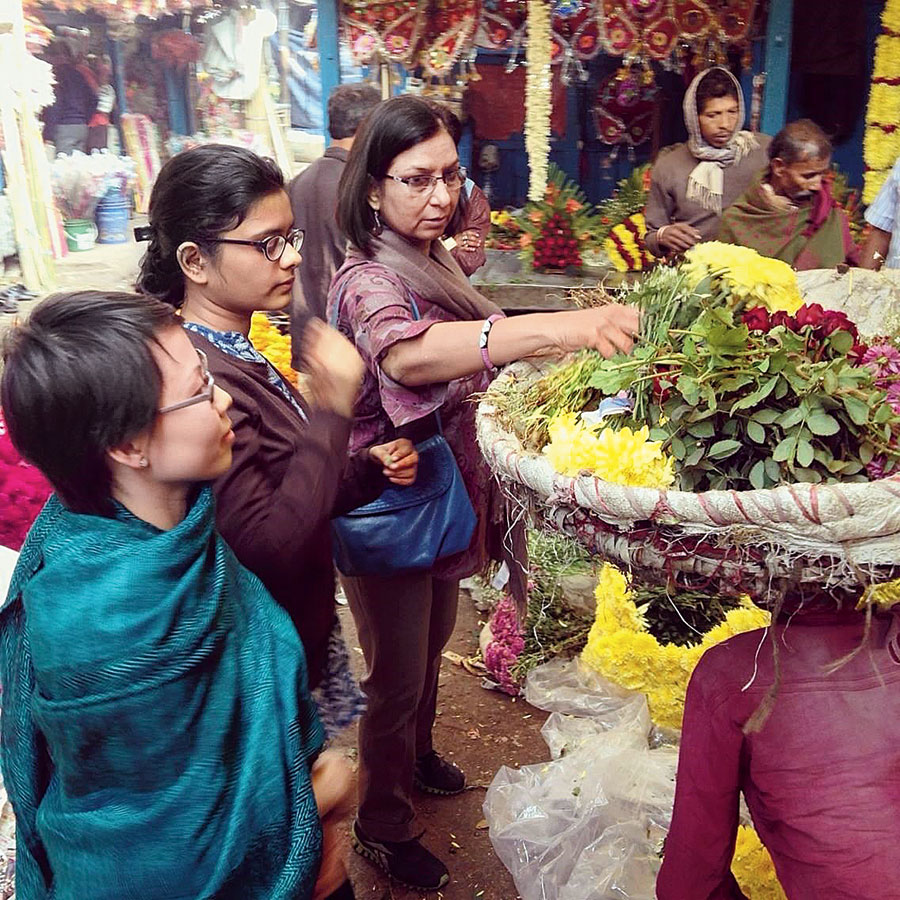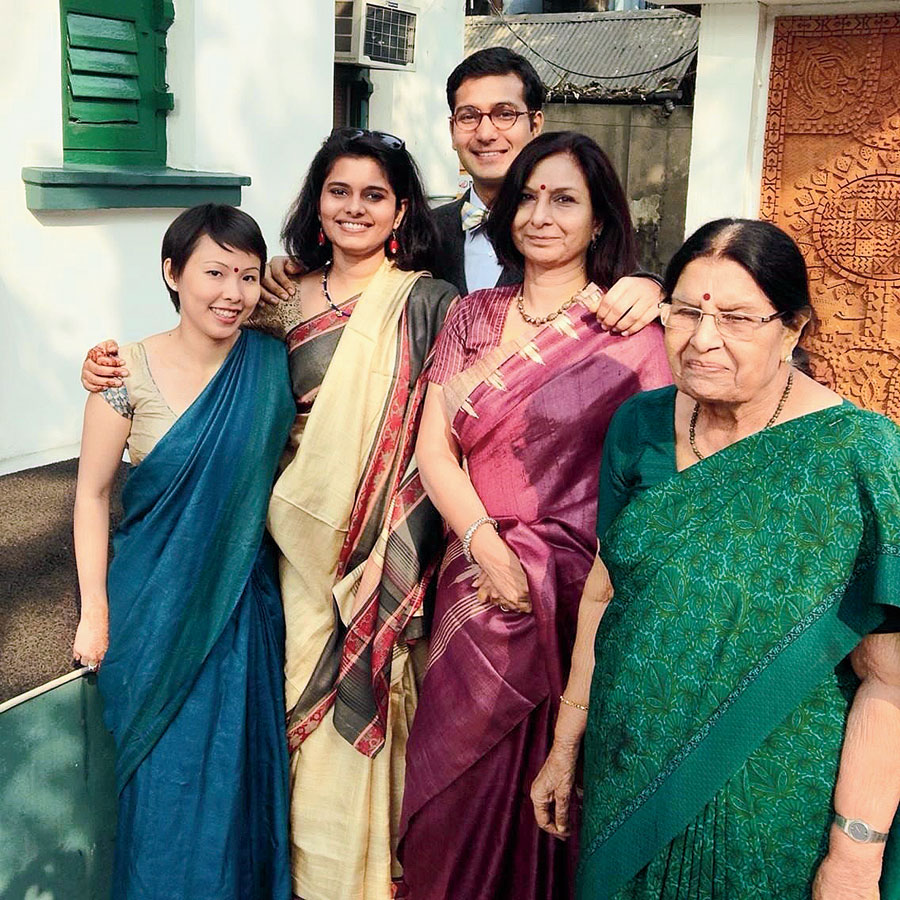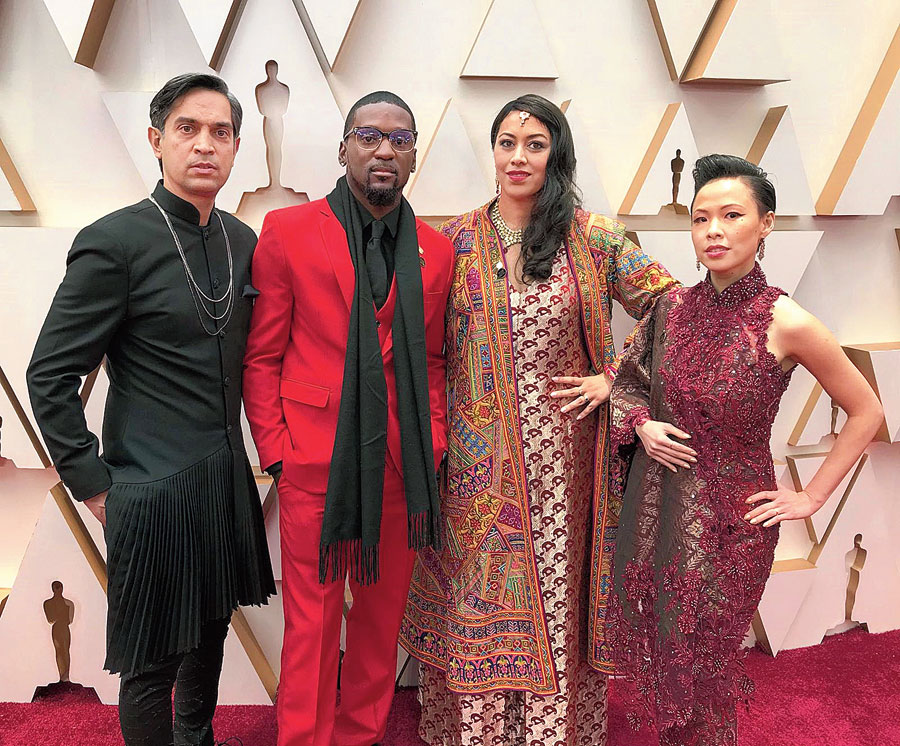A daughter-in-law of Calcutta walked the red carpet at the Oscars on Sunday.
Poh Si Teng, the co-producer of a 28-minute film that was in the race for an Oscar, is married to a lawyer from Ballygunge and can speak “ektu ektu Bangla (little Bengali)”.
St. Louis Superman, based on the life of Bruce Franks Junior, a Ferguson activist and battle rapper who was elected to the overwhelmingly white Missouri House of Representatives, competed in the documentary short subject category with four other finalists. The winner was Learning To Skateboard In A Warzone (If You’re a Girl), which tells the story of Afghan girls skateboarding to get away from the reality of living in a strife-torn country.
But Poh, senior producer for Witness, Al Jazeera English’s documentary strand, was upbeat. “The spotlight is part of the journey. What you do after the spotlight is more important,” she told The Telegraph from Hollywood.

Inside the Dolby Theatre
“It’s been an incredible honour to be nominated for an Academy Award. We are so thankful to our families and communities who have brought us here. They serve as a reminder of what the fight is about,” Poh told this newspaper after the ceremony at Dolby Theatre.
The 35-year-old, who has her roots in Malaysia, said she drew a lot of inspiration from Calcutta, a city she had been familiar with before marriage as well.
Poh’s mother-in-law Sarika Misra, a teacher, lives in Sunny Park and had flown to the US for the awards.
“It has been a while. But Calcutta is like my home. I draw a lot of inspiration from the city,” Poh said a day before the Academy Awards.
A former journalist with a stint at The New York Times, Poh contributed to publications such as the Wall Street Journal and spent several years in India. She had written an article on Muslim teenage girls at a boxing club in Kidderpore, who took to the sport to fight their way out of poverty, for the Wall Street Journal in 2009.
“I spent my formative years in India. In Calcutta, I have seen both the worst and the best in humanity. The city has had a profound impact on me,” Poh said.

Poh at a flower stall by the Hooghly on one of her visits to Calcutta
She met her husband Mayank Misra at an open mic event in Delhi, where she was singing and he played the guitar. They have been married for a decade and now live in Washington DC.
When in Calcutta, Poh’s must-do list includes a visit to a flower market by the Hooghly and a meal or two at 6 Ballygunge Place. “Bengali food is my favourite Indian cuisine. So much so that I learnt how to cook bhetki paturi and alu posto,” she said.
Poh’s co-producer Cheyenne Tan is, like her, a US-based Malaysian and the entire crew, in fact, is a statement on diversity, in keeping with the film’s subject of discrimination.
St. Louis Superman, directed by Indian-American Smriti Mundhra and Indian-Canadian Sami Khan, tells the story of Bruce Franks Junior, an African-American activist who fought his personal and political battles to push for a bill — declaring youth violence as a public health epidemic — critical to his community.

Poh with husband Mayank Misra and family
In the wake of the Black Lives Matter movement, he was elected, on a Democratic ticket, to the Missouri House of Representatives, where most of his colleagues were white Republicans.
Mayank described St. Louis Superman as a political film appropriate for this time. “But it is always relevant for any time because it is about people you stand up for their rights and the rights of their community,” said the Calcuttan in the final lap of his PhD from Princeton University.
The film is an Al Jazeera Witness documentary and is currently on air and online on Al Jazeera English.
“As a filmmaker, you are bound to respond to what is happening around you. I look for subjects who can instil hope. Frank is a protester-turned-politician who fights the systematic weight of discrimination. The story is applicable to India, Brazil and so many other places in the world,” said Poh, an Emmy-nominated director.
Aware of the protests in India against the citizenship regime, she said: “I know women are at the forefront of the protests in Delhi, Calcutta any many other places. Resilience can be learnt from women. They know how to fight.”











